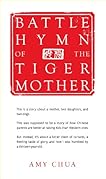I loved this book. Loved it.
President Holland at UVU has a Freshman Reading Challenge every year to try and get the Freshmen to get into an academic mindset at the beginning of their college career (which I think is brilliant, seeing as most of the Freshmen I teach have not read anything, or if they have, it's Twilight and that's about it...yikes). Last year this was one of the books (the other was
Antigone) and I just didn't get around to it until the end of the year, but I am so glad I read it.
I have so many notes throughout the book that I wanted to go back through and discuss. I'll try and keep it down to bare minimum here, but if you haven't read it, do.
It's not necessarily a how-to for success, but it blows a lot of the prominent theories that exist surrounding success right out of the water.
It is the study of success and abnormally successful people, and the results were very unexpected.
One of the big ideas of the book is that 10,000 hours of practice is required to achieve professional excellence in any endeavor. This is on average about 3 hours a day over 10 years. He states that it takes the brain this long to assimilate the information, and that age 8 is the best age to start this kind of an elite training program (whether it be in music, sports, computer science, aviation, etc.).
I think this is interesting because in ballet you are told from the time that you are little that age 8 is when a ballet dancer should start serious study of the art form, and that it takes 10 years to train a ballet dancer. I, myself, tell my students this all the time. I believe it's true... it's just interesting to think that this applies to any field.
The thing that I loved about his conclusion was that they didn't find anyone who
didn't practice this much who reached a professional level. And on the flip side, they didn't find anyone who
did practice this much that didn't achieve a professional level of expertise.
To me, the message was if you really want to do something, and you are willing to put in 10,000 hours (not something anyone does lightly), you can achieve a professional level of achievement in whatever your choice is.
Obviously, unless you have an endless supply of money or an endless supply of talent, or sometimes both, then certain things might not happen for you. But I liked that it tore down this elitist kind of attitude that sometimes exists amongst the truly successful.
The book says much about successful people who state that they are a "self-made man" and how ridiculous that thought is. It shows several examples of people who are the most successful in their field and how they put in their 10,000 hours, and then they just happened to be in the right place at the right time with the right tools at their disposal.
Another great point in the book is that intellect and ability have little to do with each other. A study took a bunch of kids with the highest IQs in their age groups and followed them for the rest of their lives. One would think that these people were the next nobel prize winners, etc. but for the most part, they lead average lives, making average salaries etc.
One more great thought. The book says, "America doesn't have a poor kids disadvantage in education. It has a summer vacation disadvantage."
Studies show that no matter a childs' socio-economical standing, all kids achieve about the same amount during the school year, if you are judging what they can do at the end of the school year as opposed to when the school year starts. But where the wealthy children have the advantage is that they get ahead of their poor classmates during the summer months.
It argues that parents who are wealthier aren't so busy just trying to make ends meet that they have the luxury of taking time to teach their children, and they have the money to send them to summer camps and get tutors, etc. The study found that in poorer households, the parents were gone almost all day long just trying to make money to live that in the summer break months, the children were left without any kind of educational guidance... or very little.
Thus, the shorter the summer vacation, the more achievement is possible for children academically. In America, children attend school 180 days out of the year, whereas Japanese children are in school for 242 days of the year.
Just some thoughts. I had so many more as I was reading them, and there's so much great material in this book that I haven't even touched on, but these were my main thoughts.
Anyone else out there have other thoughts or things that influenced them from the reading of this book?
 Battle Hymn of the Tiger Mother by Amy Chua
Battle Hymn of the Tiger Mother by Amy Chua

